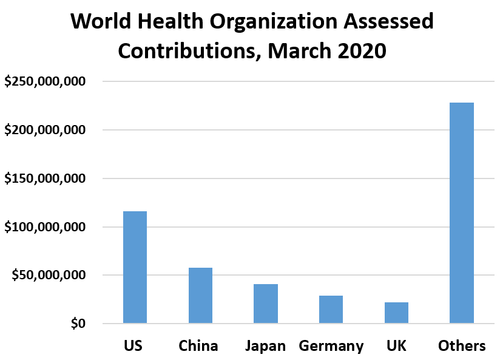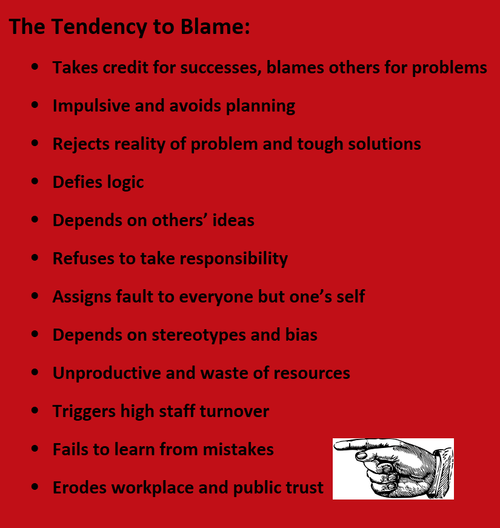Trump Threatens to Withhold Funding for WHO: NYT
Trump Threatens to Withhold Funding for WHO: NYT
Read the article from the New York Times about the US president criticizing the World Health Organization for the COVID-19 response.
Michael D. Shear is a White House correspondent. Emily Cochrane contributed reporting from Washington, and Rick Gladstone from New York.

Membership contributions: Many WHO members have not paid for the year; the World Health Organization has led on numerous global health challenges: eradicating polio and other contagious diseases, increasing vaccination rates, strengthening regulatory capacity, advising on emergency preparedness, research and more (Source: WHO)
Read about the World Health Organization and how promoting health and preventing disease in one country helps the entire world.

(Source: Gordon Tredgold, Inc.)
Writing for Forbes, Mark Murphy describes the constant tendency to blame others as unhealthy, aggressive, attacking and unproductive. Strong leaders focus on solutions and accountability rather than blame: “When someone blames, they’re basically trying to shift attention away from themselves.”
Writing for Inc., Gordon Tredgold explains that poor leaders focus on blame rather than solutions, refusing to take responsibility, and he suggests that harmful attitudes are permeating society: “Unfortunately, this whole idea of blaming others instead of being accountable has become part of our culture. It’s everywhere. It’s in individuals, families, celebrities, athletes, the government, and it’s very much alive in businesses.”
YaleGlobal has published more than 75 articles warning about COVID-19 and providing advice since January 10, 2020, starting with WHO’s posting of the genetic sequence for the virus.
See YaleGlobal’s special section on COVID-19.